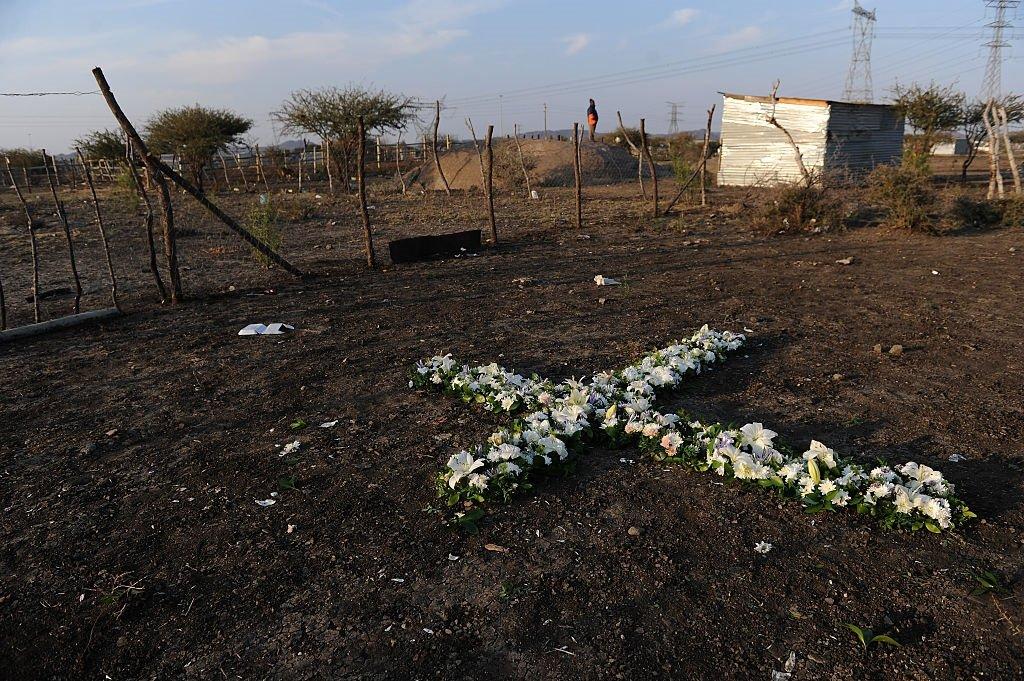Africa-Press – South-Africa. Tuesday will mark a decade since 34 Lonmin mineworkers were killed when police opened fire during a wage strike – and, for most of the families, the trauma of August 2012 has had a psychological and emotional impact.
Ten people, including Lonmin mine security guards and police officers, died in the days leading to the massacre.
Speaking at a Marikana commemorative event, titled ‘Respect & Retrospect’ – hosted by the University of Johannesburg’s Centre for Social Change – Nomzamo Zondo, of the Socio-Economic Rights Institute (SERI), said immediate and extended families had lost breadwinners.
Zondo said the families had been asking for the criminal justice system to be effective; they want those involved to be arrested, prosecuted and convicted.
‘He never sets foot in Marikana’: Miners’ widows want apology from Ramaphosa
She added: “The families have said they want someone to apologise to them. They want an apology.”
Zondo said that, following the massacre, a baby of one of the families was stillborn – and, in two other families, two of their loved ones had committed suicide.
She said 10 people were killed before the massacre; no one from the state had apologised or even updated them daily about the prosecution of those responsible.
“… and most importantly, for most families, there has been no compensation,” she said.
Last year, the solicitor-general, Fhedzisani Pandelani, told a briefing that the government had settled to the tune of R69 083 005 million, which had been “paid and payment has been confirmed”.
He said SERI instituted 36 claims against the government on behalf of families who had lost loved ones.
Last week, Pandelani said that, by the end of August, the government would have paid compensation to the 24 remaining claimants.
Meanwhile, James Nichol, who represented the families at the Farlam Commission, described the commission as the “most hostile commission for working class and ordinary people I’ve ever been involved in”.
Speaking at the university event, Nichol said: “The widows and the people who came from the Eastern Cape were referred to by judge [Ian] Farlam as being uneducated…”
It was “not surprising” that Farlam concluded in his findings “that the tragic events that occurred during the period 12 to 16 August 2012 originated from the decision and conduct of the strikers in embarking on an unprotected strike and in enforcing the strike by violence and intimidation, using dangerous weapons for the purpose”.
Nichol said what was “astonishing” at the commission was that no one who fired shots was brought before the commission, adding that this was an “utter disgrace”.
Life after Marikana – no accountability, no apology, no justice
Nichol said the commission should have concluded that what happened from 10 to 16 August 2012 originated from “a conspiracy between Lonmin and the state to crush the mineworkers and put profit before the living wage that the mineworkers were entitled to”.
Lonmin was bought by Sibanye-Stillwater in 2019.
For More News And Analysis About South-Africa Follow Africa-Press






